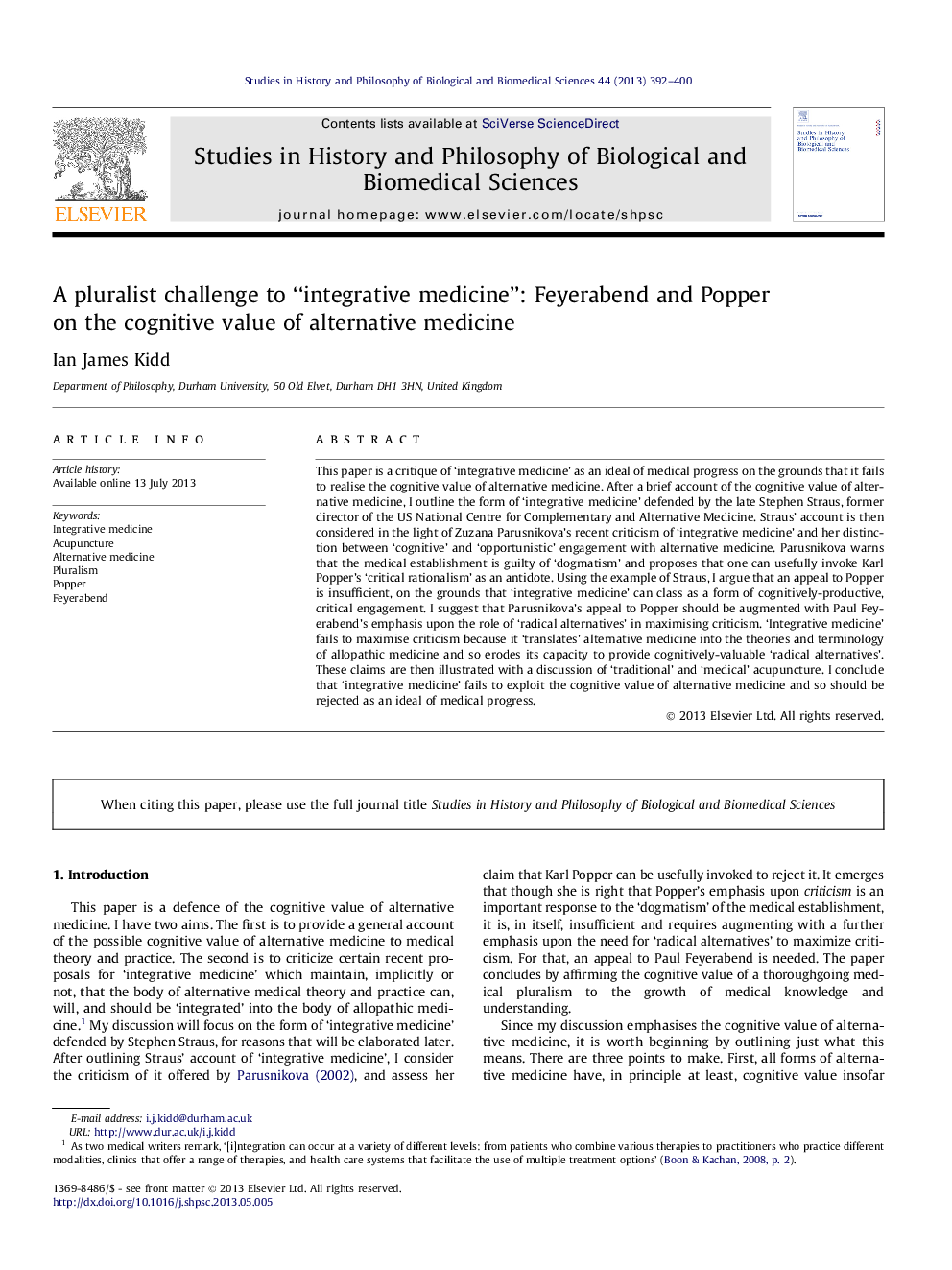| Article ID | Journal | Published Year | Pages | File Type |
|---|---|---|---|---|
| 1161769 | Studies in History and Philosophy of Science Part C: Studies in History and Philosophy of Biological and Biomedical Sciences | 2013 | 9 Pages |
This paper is a critique of ‘integrative medicine’ as an ideal of medical progress on the grounds that it fails to realise the cognitive value of alternative medicine. After a brief account of the cognitive value of alternative medicine, I outline the form of ‘integrative medicine’ defended by the late Stephen Straus, former director of the US National Centre for Complementary and Alternative Medicine. Straus’ account is then considered in the light of Zuzana Parusnikova’s recent criticism of ‘integrative medicine’ and her distinction between ‘cognitive’ and ‘opportunistic’ engagement with alternative medicine. Parusnikova warns that the medical establishment is guilty of ‘dogmatism’ and proposes that one can usefully invoke Karl Popper’s ‘critical rationalism’ as an antidote. Using the example of Straus, I argue that an appeal to Popper is insufficient, on the grounds that ‘integrative medicine’ can class as a form of cognitively-productive, critical engagement. I suggest that Parusnikova’s appeal to Popper should be augmented with Paul Feyerabend’s emphasis upon the role of ‘radical alternatives’ in maximising criticism. ‘Integrative medicine’ fails to maximise criticism because it ‘translates’ alternative medicine into the theories and terminology of allopathic medicine and so erodes its capacity to provide cognitively-valuable ‘radical alternatives’. These claims are then illustrated with a discussion of ‘traditional’ and ‘medical’ acupuncture. I conclude that ‘integrative medicine’ fails to exploit the cognitive value of alternative medicine and so should be rejected as an ideal of medical progress.
